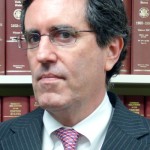
NEXT HASC CHAIR SEES NEED FOR GREATER DOD TRANSPARENCY
Rep. Adam Smith (D-WA), the likely chair of the House Armed Services Committee in the next Congress, told congressional colleagues that enhancing national security transparency is among his top oversight priorities.
“Together, we have made strides on national security issues but much more must be done to conduct vigorous oversight of the Trump Administration and the Department of Defense,” he wrote in a November 8 letter to House Democrats, declaring his candidacy for HASC chairman.
“Specifically, we must look to eliminate inefficiency and waste at the DOD; boost oversight of sensitive military operations and ensure that the military works to avoid civilian casualties; protect our environmental laws nationwide; advance green technology in defense; take substantial steps to reduce America's overreliance on nuclear weapons; and promote greater transparency in national security matters,” he wrote.
In an opinion column last month, Rep. Smith elaborated on the topic. He said the Trump Administration and the Pentagon had abused their secrecy authority with counterproductive results.
“The Defense Department under this administration [. . .] declared war on transparency in their earliest days on the job. On issue after issue, they have made conspicuous decisions to roll back transparency and public accountability precisely when we need it most,” he wrote, citing numerous examples of unwarranted secrecy.
A course correction is needed, he said.
“Candid discussion with Congress about military readiness, the defense budget, or deployments around the world; the release of general information about the effectiveness of weapons systems that taxpayers are funding; and many other basic transparency practices have not harmed national security for all the years that they have been the norm,” he wrote. “The efforts to further restrict this information are unjustified, and if anything, the recent policies we have seen call for an increase in transparency.”
See “The Pentagon's Getting More Secretive — and It's Hurting National Security” by Rep. Adam Smith, Defense One, October 28, 2018.



